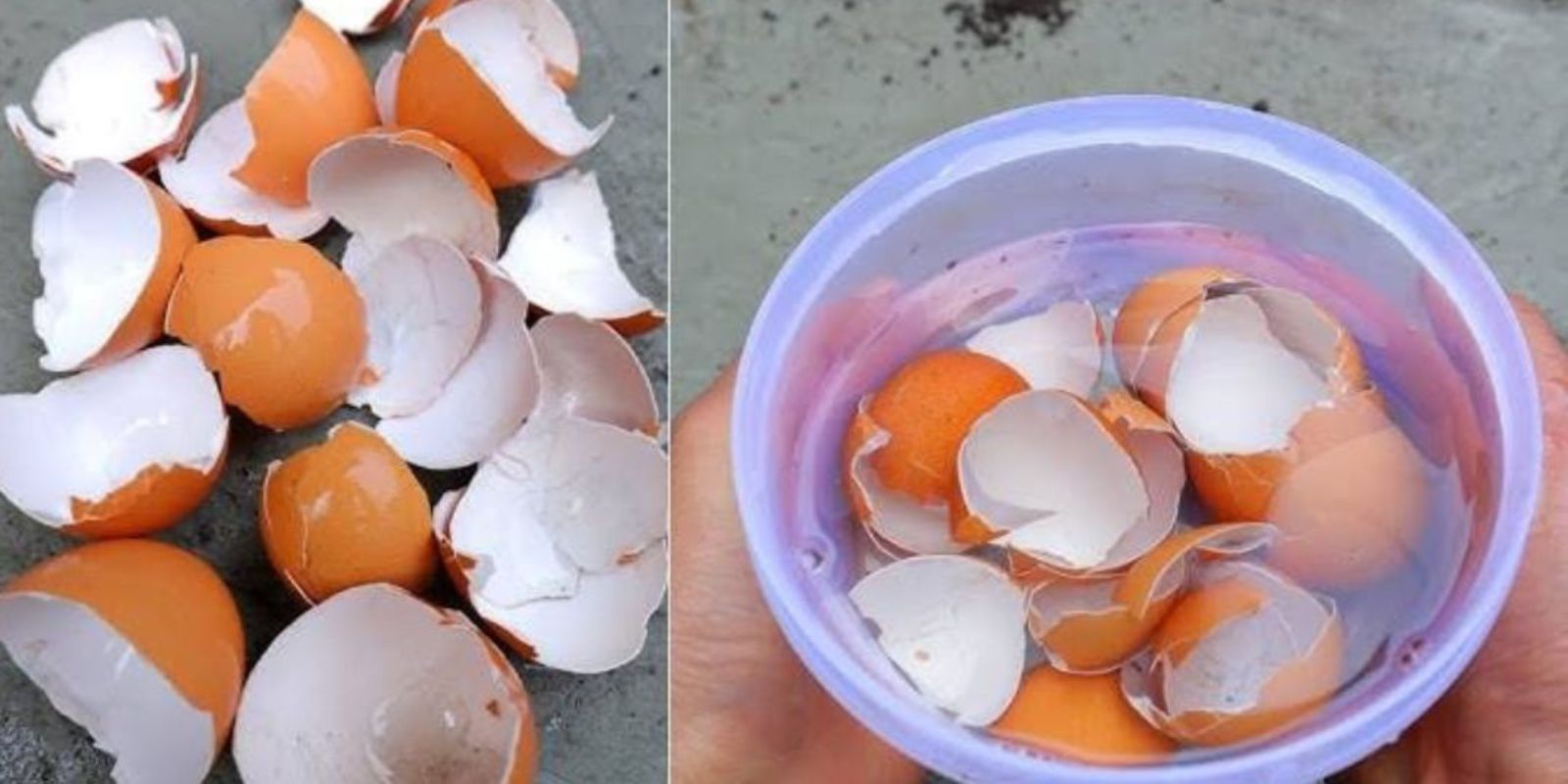Eggshells often end up in the trash, but these humble kitchen scraps are a goldmine for gardeners. Packed with essential nutrients like calcium, they can significantly enhance your soil, protect plants, and support sustainable gardening practices. Here’s a detailed guide on how to use eggshells in your garden, turning waste into a powerful ally for your plants.
Why Eggshells Are Valuable in the Garden
Eggshells are made up of 95% calcium carbonate, a vital nutrient for plants. Calcium is essential for strong cell walls, proper root development, and preventing issues like blossom end rot in tomatoes and peppers. Additionally, eggshells contain trace elements like magnesium and phosphorus, which further contribute to plant health.
Benefits of Eggshells in Gardening:
- Natural calcium boost for plants.
- Organic pest deterrent.
- Improves soil structure.
- Perfect for composting.
- A sustainable, eco-friendly alternative to chemical fertilizers.
How to Prepare Eggshells for the Garden
Before reusing eggshells, proper preparation is essential:
- Collect and Clean: After using eggs, rinse the shells thoroughly to remove any leftover egg white or yolk. This prevents odor and discourages pests.
- Dry: Air-dry the shells for a day or bake them in the oven at low heat for 10 minutes to make them brittle.
- Crush or Grind: Depending on their intended use, crush the shells into small pieces or grind them into a fine powder using a blender or mortar and pestle.
8 Effective Ways to Use Eggshells in the Garden
1. Improve Soil Health
Crushed eggshells act as a slow-release calcium fertilizer. Scatter them around the base of plants or mix them into the soil to enrich it with essential nutrients. This is particularly beneficial for plants like tomatoes, peppers, and eggplants, which are prone to calcium deficiencies.
2. Fertilize Plants
For a more concentrated calcium boost, grind eggshells into a fine powder. Sprinkle the powder around the base of your plants and water it in. The finer the powder, the faster the calcium will be absorbed into the soil.
3. Composting
Eggshells are an excellent addition to compost piles. They decompose slowly, releasing calcium and other trace elements into the compost. Crush them before adding to speed up the decomposition process.
4. Pest Control
Crushed eggshells can deter pests like slugs, snails, and cutworms. Their sharp edges irritate these soft-bodied pests, keeping them away from your plants. Simply sprinkle crushed shells around the perimeter of your plants to create a natural barrier.
5. Seed Starters
Eggshell halves make perfect biodegradable seed pots. Fill them with potting soil, plant your seeds, and water lightly. Once the seedlings are strong enough, plant the entire eggshell in the ground. The shell will decompose, enriching the soil with calcium.
6. Enhance Compost Tea
Steep crushed eggshells in water for a few days to create a calcium-rich compost tea. Use this solution to water your plants and provide them with an instant nutrient boost.
7. Mulching
Scatter crushed eggshells on the surface of your soil as a natural mulch. They help retain moisture, prevent weed growth, and slowly release nutrients into the soil.
8. Neutralize Soil Acidity
Eggshells can help raise the pH of acidic soils. If your soil is too acidic for certain plants, such as vegetables or herbs, work ground eggshells into the soil to balance its pH over time.
Which Plants Benefit Most from Eggshells?
While eggshells can benefit most plants, certain types thrive with added calcium:
- Tomatoes: Prevent blossom end rot.
- Peppers: Strengthen cell walls and prevent deformities.
- Cucumbers: Support healthy fruit development.
- Broccoli and Cauliflower: Promote robust growth.
- Roses: Encourage vibrant blooms.
- Herbs like Basil: Thrive in calcium-rich soil.
Tips for Using Eggshells Effectively
- Consistency is Key: Eggshells take time to break down, so regular application is necessary to see long-term benefits.
- Combine with Other Fertilizers: For a balanced nutrient profile, use eggshells alongside other organic fertilizers like compost or coffee grounds.
- Store Properly: Collect eggshells over time and store them in a dry, ventilated container until ready to use.
A Sustainable Approach to Gardening
Using eggshells in the garden is not just beneficial for plants but also supports sustainable living. By reusing kitchen waste, you reduce landfill contributions and reliance on chemical fertilizers, promoting an eco-friendly lifestyle.
Common Questions About Eggshells in Gardening
1. How long does it take for eggshells to decompose?
Crushed eggshells take months to decompose fully in the soil. Grinding them into powder speeds up this process.
2. Can eggshells attract pests?
Properly cleaned and dried eggshells should not attract pests. However, unwashed shells with leftover egg residue may invite unwanted visitors.
3. Can I use eggshells in indoor plants?
Yes! Crushed eggshells can be mixed into potting soil or added to compost for indoor plants, providing a slow release of calcium.
4. Are brown and white eggshells equally effective?
Yes, both types of eggshells contain the same nutrients and are equally beneficial.
Get Started Today!
Next time you crack an egg, think twice before throwing the shell away. With minimal effort, you can turn these everyday kitchen scraps into a powerful gardening tool. Whether you’re enriching your soil, protecting plants from pests, or starting seedlings, eggshells are an incredible resource for any gardener.
What’s your favorite way to use eggshells in your garden? Share your tips and experiences below! 🌱

